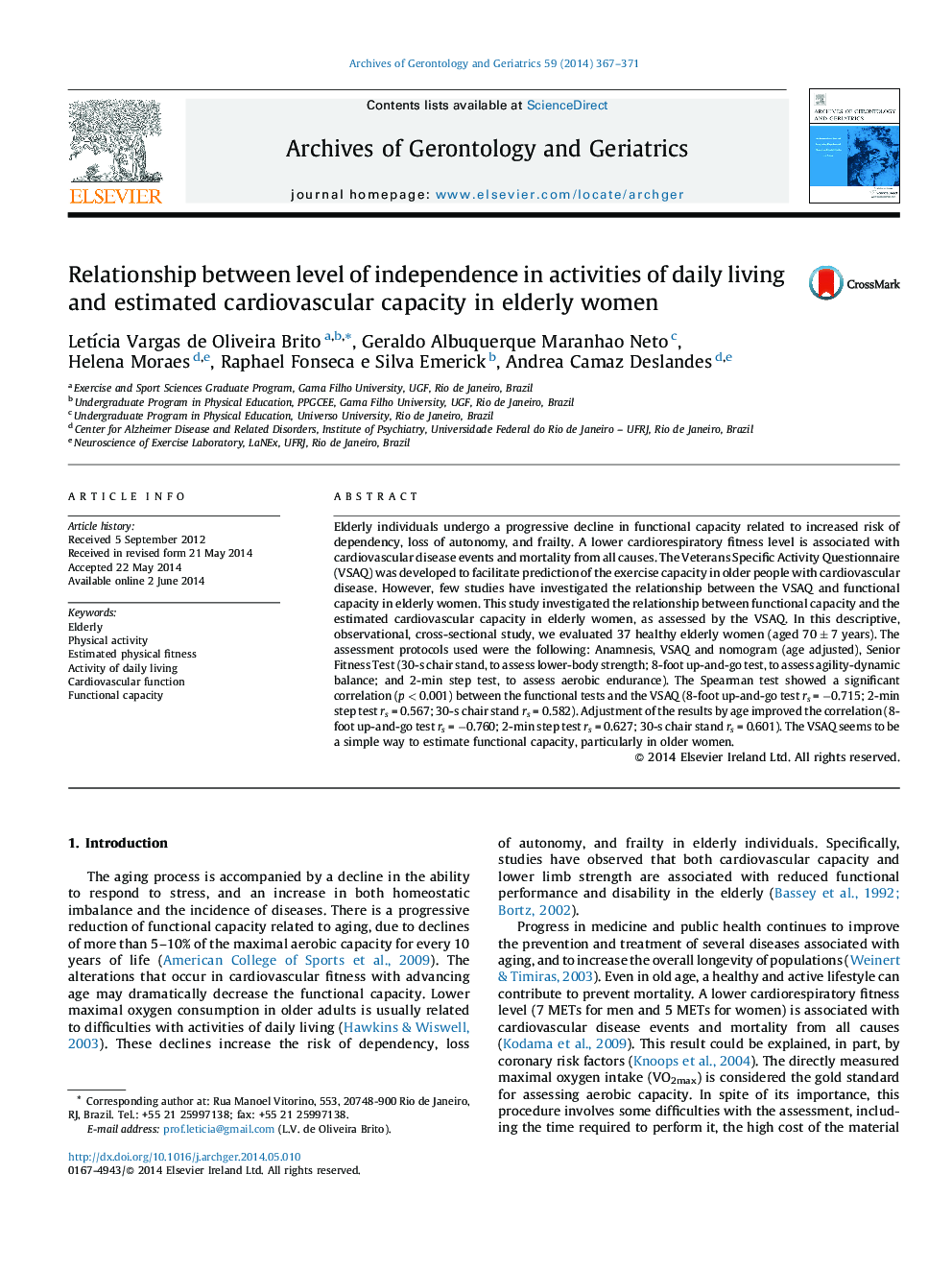| Article ID | Journal | Published Year | Pages | File Type |
|---|---|---|---|---|
| 1902943 | Archives of Gerontology and Geriatrics | 2014 | 5 Pages |
•We investigated the relationship between functional capacity and the estimated cardiovascular capacity, as assessed by a VSAQ questionnaire.•There was a significant correlation between the functional tests and the VSAQ questionnaire.•Adjustment of the results by age improved the correlation.•The VSAQ questionnaire seems to be a simple way to estimate functional capacity, particularly in older women.
Elderly individuals undergo a progressive decline in functional capacity related to increased risk of dependency, loss of autonomy, and frailty. A lower cardiorespiratory fitness level is associated with cardiovascular disease events and mortality from all causes. The Veterans Specific Activity Questionnaire (VSAQ) was developed to facilitate prediction of the exercise capacity in older people with cardiovascular disease. However, few studies have investigated the relationship between the VSAQ and functional capacity in elderly women. This study investigated the relationship between functional capacity and the estimated cardiovascular capacity in elderly women, as assessed by the VSAQ. In this descriptive, observational, cross-sectional study, we evaluated 37 healthy elderly women (aged 70 ± 7 years). The assessment protocols used were the following: Anamnesis, VSAQ and nomogram (age adjusted), Senior Fitness Test (30-s chair stand, to assess lower-body strength; 8-foot up-and-go test, to assess agility-dynamic balance; and 2-min step test, to assess aerobic endurance). The Spearman test showed a significant correlation (p < 0.001) between the functional tests and the VSAQ (8-foot up-and-go test rs = −0.715; 2-min step test rs = 0.567; 30-s chair stand rs = 0.582). Adjustment of the results by age improved the correlation (8-foot up-and-go test rs = −0.760; 2-min step test rs = 0.627; 30-s chair stand rs = 0.601). The VSAQ seems to be a simple way to estimate functional capacity, particularly in older women.
